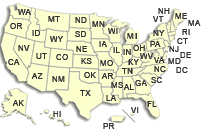South Atlantic Water Science Center - North Carolina Office
|
Project OverviewFull Title
Location Cooperating Agencies Project Chief Period of Project Team Members Rob Weems (Geologic Discipline) Jean Self-Trail (Geologic Discipline) Melinda Chapman (Water Resources Discipline) WWW Resources USGS Eastern Earth Surface Processes USGS IN YOUR STATEUSGS Water Science Centers are located in each state. 
|
Stratigraphic CoringThis project was completed in 2008. These pages are for historical purposes only. Project SummaryDrill rig at the 2004 Hope Plantation drill site Background A current area of interest for the National Cooperative Geologic Mapping (NCGM) Program is coastal North Carolina (for more information, please see FEDMAP and the NCGM 2005-2011 Program Plan). One of the NCGM Program goals is the construction of digital maps and the use of geographic information systems (GIS) to explore and evaluate geospatial links between human health and geology, hydrology, and biology. Part of reaching this goal is improving the understanding of the geologic framework for ground-water resource assessments; to that end coreholes currently are being drilled in the northeastern part of North Carolina. Objectives In March 2005 the U.S. Geological Survey Coastal Carolina Project began drilling a deep core hole that may reach basement in Craven County. Data are being collected from this location to provide better resolution for the regional aquifers and confining units which will increase understanding of the hydrogeologic framework of the Coastal Plain. Approach The first round of drilling ran from March 8 to March 27, 2004. The next round is scheduled for March 2006 for the completion of the Cove City hole. The USGS Eastern Earth Surface Processes Team will use a wireline core drilling rig to collect continuous core which may reach bedrock at this drill site. The collection of continuous core provides a more complete lithologic sample than many other drilling methods. Scientists anticipated to be on site include geologists, paleontologists, hydrologists, and core-recovery specialists. |